Subscribe for more!
Subscribe to our newsletter for insights and articles on wide ranging issues including reputation management, branding, advertising, awareness, advocacy, and communications. You can unsubscribe anytime.
Follow us on social:

The following findings are from a spark*insights survey commissioned by Egale Canada. Here’s what we found.
One-third (33%) of Canadians know someone personally who identifies as transgender, and 6% say they have a close relationship with at least one transgender person. Progressive voters are more likely to know someone who identifies this way, while Conservatives are slightly less likely to compared to the national average.
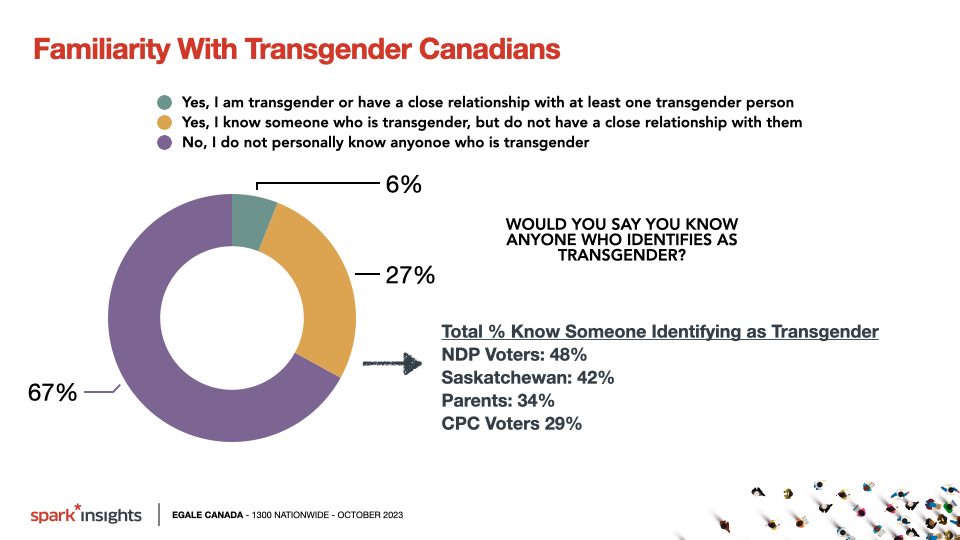
Canadians are divided on whether to support policies requiring teachers to inform parents if a child changes the name or pronouns they want to be identified with in schools. 51% support the current status quo of allowing teachers discretion to make the decision based on individual circumstances, while 49% support making it mandatory to inform parents. In Saskatchewan, where Premier Moe is considering using the notwithstanding clause to pass legislation, only 45% support his position of requiring parents to be informed, with 55% supporting teacher discretion.
There is a large gender gap on this issue, with women (58%) significantly more supportive of giving teachers discretion than men (44%). Those who know a transgender person are significantly more likely to want teacher discretion (63%).
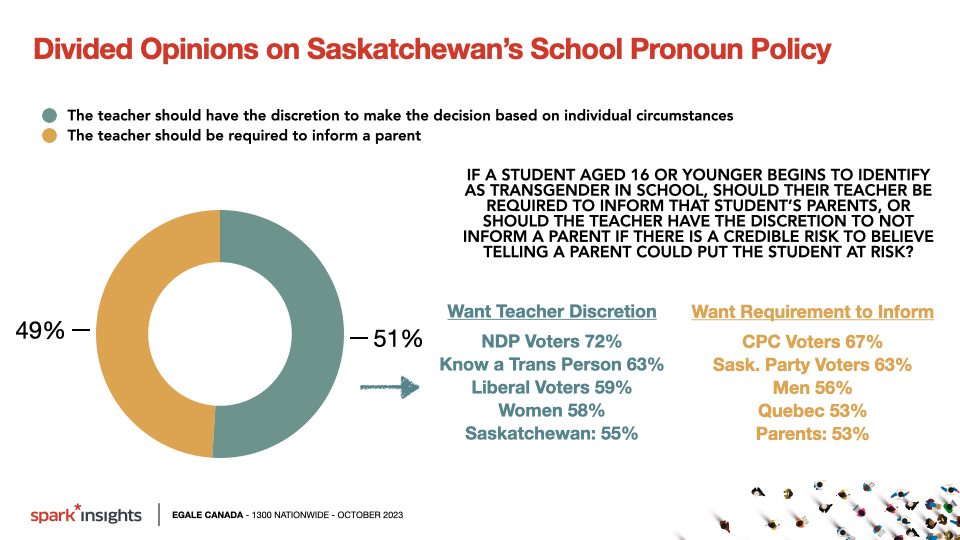
When Canadians are asked if there is potential for harm to children if parents are told about a gender identity choice without a child’s consent, 24% say this is almost certain and an additional 36% say this is likely to occur. Belief that harm is likely to happen is higher among those who know a transgender person (68%).
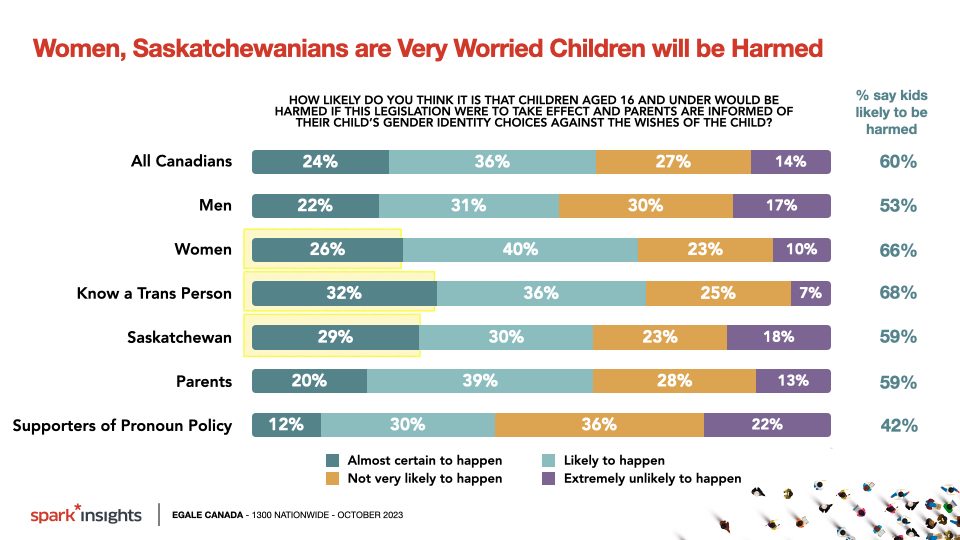
Opposition to this policy is correlated with the belief the policy could lead to children being harmed as a result, with 66% of those who think harm is likely supporting teacher discretion, while 71% of those who believe harm is unlikely support requirements to inform.
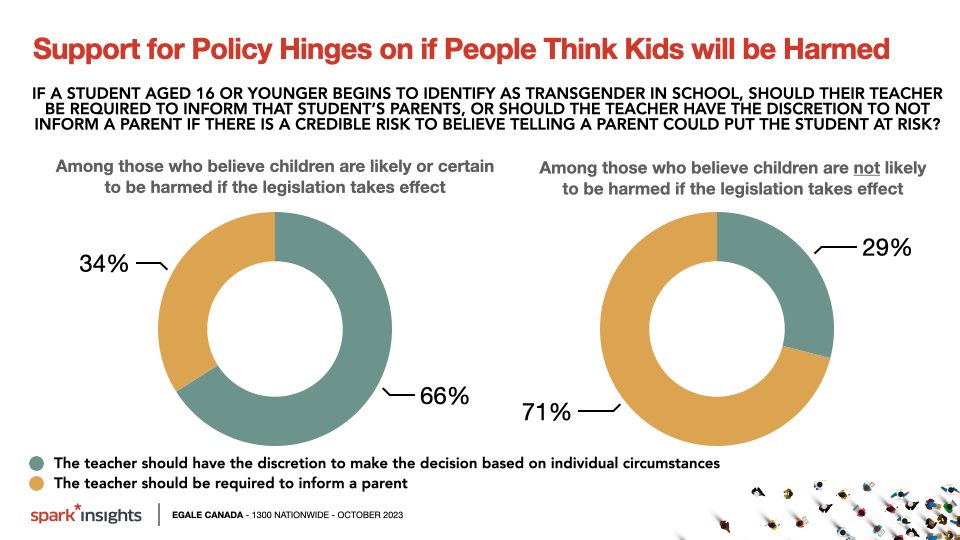
When asked to choose three top priorities for provincial governments to focus on, only 4% of survey respondents chose protecting parental rights, far below the top priorities of cost of living (58%), healthcare (51%) and housing (44%).
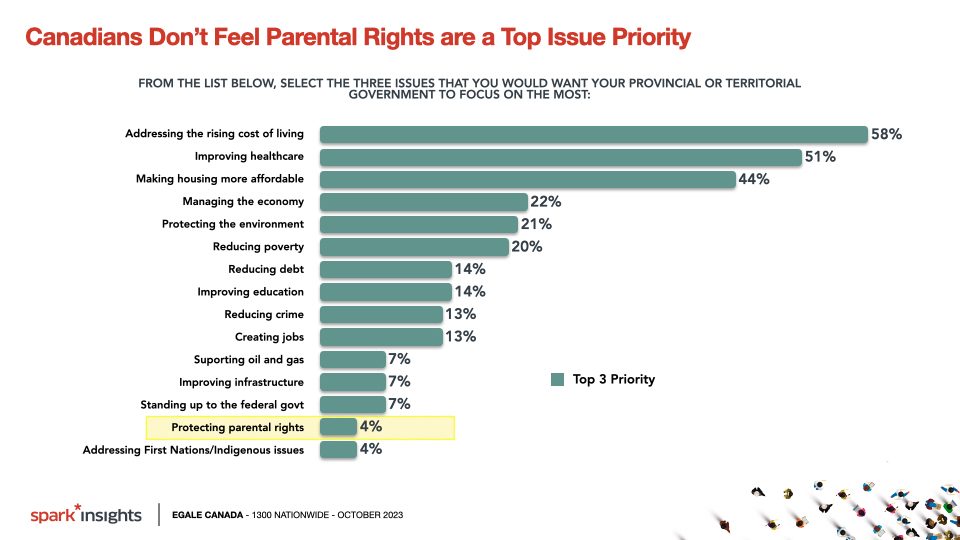
The relative importance of parental rights is somewhat higher in Saskatchewan (8%) and among parents (6%), but it remains among the lowest priorities of all issues prompted among both groups. Even among respondents who said they supported requiring teachers to inform parents, the topic of parental rights was only the 14th rated priority out of 15 tested.
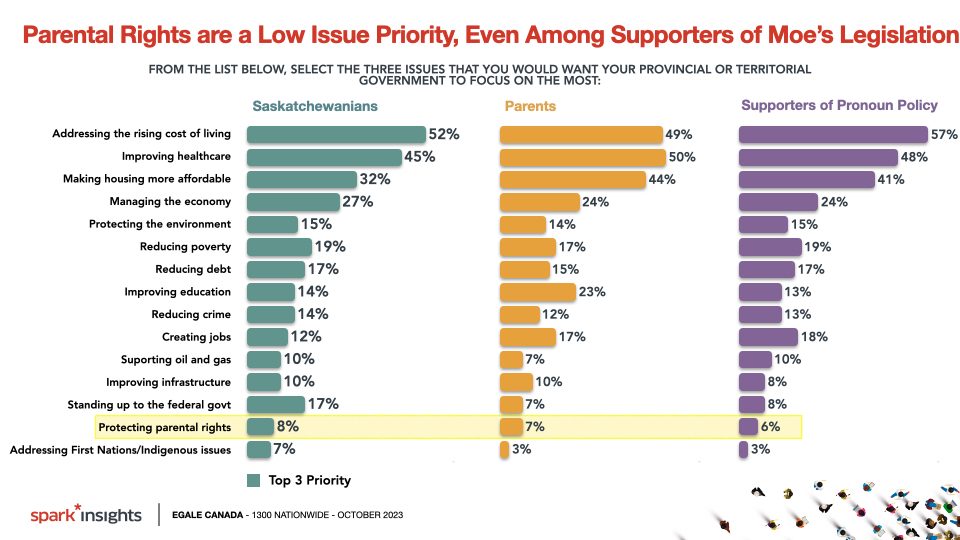
As Saskatchewan holds an emergency legislative session to debate the topic, only 13% of Canadians say the policy area necessitates emergency debates and rapid legislation, and only 18% feel this way in Saskatchewan. Majorities feel the issue should either be studied for a medium-term solution or put on the backburner as governments deal with more pressing priorities.
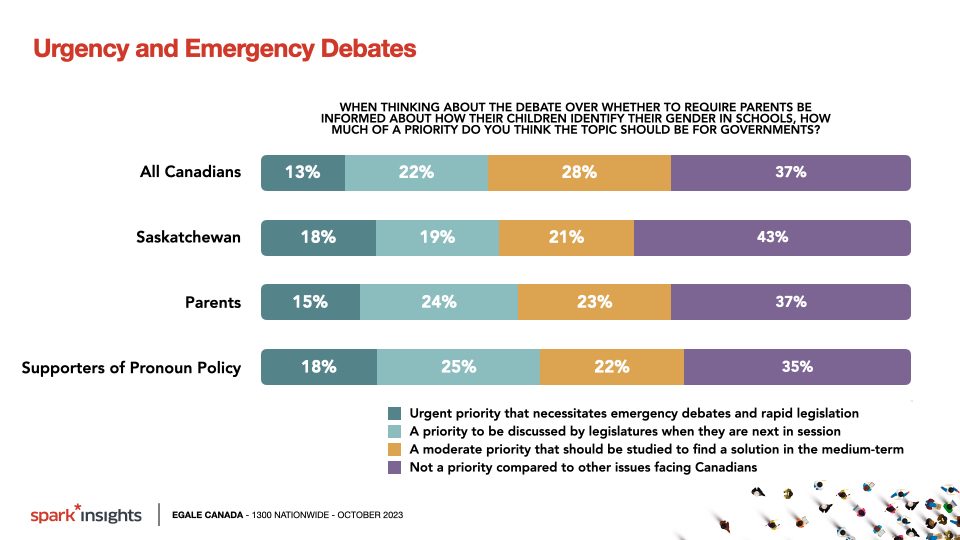
And finally, with Saskatchewan considering using the notwithstanding clause to immediately overrule a court injunction on the topic, it’s significant to note that 68% of Saskatchewanians and 73% of Canadians would prefer the Moe government to let the courts review the policy before rushing to overrule it.
Even among supporters of the policy (56% wait for court review), and supporters of Scott Moe’s Saskatchewan Party (55% wait), slim majorities prefer patience over implementing the notwithstanding clause to overrule.
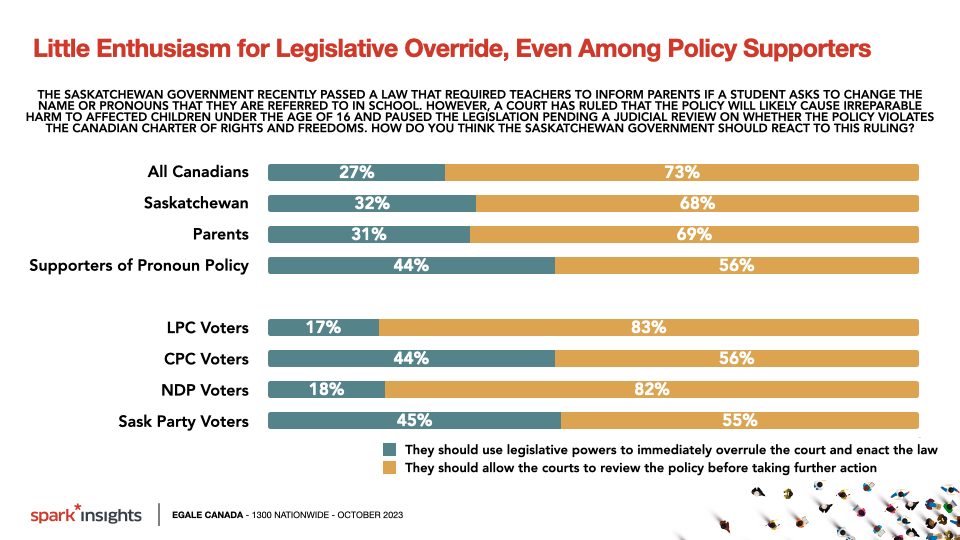
People are divided on whether teachers should be required to tell parents about gender identity changes in schools. There is considerable concern about the potential for harm to children. Canadians and Saskatchewan residents don’t feel there is great urgency to drawing a harder line on this in policy terms – they seem more inclined to feel that time and careful study is a better approach than rushing to emergency debate and the use of the notwithstanding clause.
Online, 1,300 Canadians, October 4-8, 2023, over-samples of 350 Saskatchewanians & 300 parents of children under the age of 18.
spark*insights is led by Bruce Anderson, one of Canada’s leading and most experienced public opinion researchers. From polling and research to analysis and guidance, we help organizations, uncover the factors driving or influencing public perception to gain valuable insights into the shape and movement of the landscape.